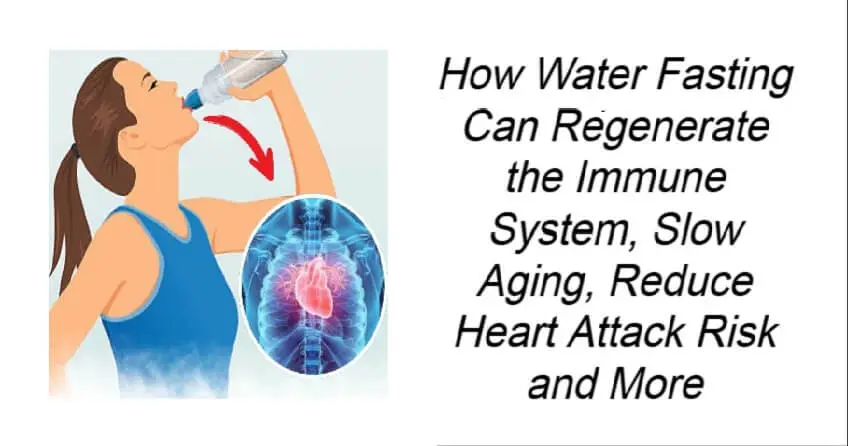How Water Fasting Can Have Many Benefits …Regenerate the Immune System, Slow Aging, Reduce Heart Attack Risk and More
Water fasting—consuming only water for a set period—is a practice that has gained attention for its potential health benefits. From weight loss and enhanced metabolism to immune support and anti-aging effects, fasting offers some promising rewards. However, like any health practice, it’s important to approach it with care.
What Is Water Fasting?
Water fasting involves abstaining from all food and drink except water for a specific period, typically ranging from 24 hours to several days. Common durations include:
Short fasts: 24–72 hours
Extended fasts: 5–7 days (or more, under medical supervision)
Some individuals enhance their water with natural additions like lemon, ginger, or cayenne pepper, though traditional water fasting excludes all additives.
Potential Benefits of Water Fasting
1. Weight Loss
Fasting induces ketogenesis, a state where the body burns fat for energy, promoting weight loss and body fat reduction.
2. Autophagy
One of the most talked-about benefits is autophagy, a cellular process where the body cleans out damaged cells and regenerates new ones—linked to lower risks of cancer and neurodegenerative diseases.
3. Reduced Inflammation
Studies show fasting can lower inflammation levels, which contributes to improved heart health and reduced risk of chronic disease.
4. Improved Brain Function
Some research suggests fasting enhances mental clarity and supports brain health by promoting the production of brain-derived neurotrophic factor (BDNF).
Is Water Fasting Safe?
Short-term water fasting (1–3 days) is generally safe for most healthy individuals when done correctly. That said, side effects can include:
- Headaches
- Fatigue or weakness
- Difficulty sleeping
- Dizziness or irritability
Extended fasting (beyond 3 days) can lead to electrolyte imbalances, kidney stress, and other complications. It should only be done with professional medical supervision.
Who Should Avoid Water Fasting?
Water fasting is not recommended for:
- Children and teenagers
- Pregnant or breastfeeding individuals
- People with type 1 diabetes or uncontrolled type 2 diabetes
- Those with eating disorders or a history of disordered eating
- Individuals with chronic health conditions (unless advised by a doctor)
How to Water Fast Safely
Before the fast:
- Gradually reduce food intake a day or two beforehand.
- Avoid caffeine, alcohol, and processed foods.
- Eat nutrient-dense, whole foods to prepare your body.
During the fast:
- Drink 2 to 3 liters of water daily.
- Avoid intense exercise or stressful situations.
- Rest when needed and listen to your body.
After the fast:
- Break your fast gently with juices, broths, or soft fruits.
- Reintroduce solid food slowly over 1–2 days.
- Avoid overeating to prevent digestive discomfort.
Tips for a Successful Water Fast
- Ease into fasting—don’t quit eating abruptly.
- Use herbal teas or warm water to soothe hunger (if you choose to).
- Focus on rest, mindfulness, and hydration.
- Stop fasting if you feel faint, extremely weak, or unwell.
inal Thoughts
Water fasting can offer powerful health benefits like cellular repair, reduced inflammation, and fat loss. However, it’s not suitable for everyone, and safety should always come first. If you’re considering water fasting—especially for more than a couple of days—consult a healthcare professional to ensure it’s right for your body and your goals.
Remember: Just because something is natural doesn’t mean it’s risk-free. Fasting is a tool—use it wisely.
You’ve just read, How Water Fasting Can Have Many Benefits. Why not read Manager Had To Hire A New Employee.

